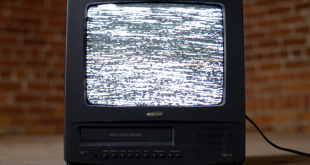Horror is a wide genre that spans slasher flicks and supernatural encounters, but sometimes it takes a much subtler form. Some stories follow those battling tooth and nail for perfection, and in the struggle to be the best, they sacrifice part of themselves in the meantime. Here are two examples that tell these kinds of stories, while capturing the mania and suspense that we’d expect from horror films.
Source: Pexels
Art & Perfection in the Digital Age
Today’s pair of movies follow art forms twisted by the pursuit of perfection. When someone chooses a creative career, their ability is directly tied to their status. Whether it’s to prove something to themselves or others, they become at the mercy of their peers and the institutions that control their lives, sacrificing everything for continued success.
Thankfully, the digital age subverted some of those pathways by causing an explosion in independent artists. Digital art is central to many online industries, such as iGaming. There, the art and animations used in their games are part of the appeal, and an integral part of their marketing alongside the typical casino bonus for new customers. The games aren’t specific to websites, they’re made by developers and showcased on-site in a modular way, the work of many artists. This is one example where internet-based business has taken the pressure off artists – there was no competition or qualifying board. We also see this with music streaming, where artists have taken off without ever putting on a live performance or navigating board rooms of stuffy music execs.
Black Swan (2010)
Black Swan (2010) is Darren Aronofsky’s portrayal of the big egos and cutthroat competition in the New York City Ballet company. At least, that’s what it seems, as Natalie Portman’s Nina Sayers competes with Mila Kunis’ Lily, who’s set to play the black swan. In Swan Lake, the white and black swans are typically played by the same person. When Lily is brought in, Nina starts a descent wrought with paranoia and the occasional hallucination.
While the white swan embodies innocence, the black swan is supposed to embody a darker, sensual entity that Nina can’t portray. Partly inspired by a Dostoevsky novel, Lily acts as Nina’s foil and even becomes a literal doppelganger in her eyes, as she loses grip with reality. After reaching rock bottom and ‘dealing’ with Lily, Nina is finally able to embody the black swan.
Then she realises that, in her madness, she injured herself – not Lily. Despite bleeding, she finishes the act as the white swan. She nails it and is unrepentant as the people around her scramble to get her help.
Whiplash (2014)
In Whiplash (2014), Miles Teller found his breakout role as Andrew Nieman, a jazz drummer struggling to please J.K. Simmons’ Terence Fletcher. A brutal, manipulative tutor, Fletcher is an unpredictable and intimidating on-screen presence. He talks trash like the best of them and, coming off the actor’s health kick, he’s jacked and shows that physicality in several scenes of the film.
Their power play ends with a sometimes-misunderstood flourish where Nieman hijacks Fletcher’s set at a jazz festival. He goes ballistic on the drum set, earning the respect of Fletcher.
Fletcher’s goal as a teacher is to find his Charlie Parker, a drum prodigy he can mould into a jazz machine with his abusive tutelage. That shot of Nieman’s father watching from outside the hall isn’t a throwaway – here’s how the script describes it:
“Jim watches Andrew – crazed, exhausted, looks like he’s pushing himself past what is safe – and knows there is no longer anything he can do about it.
He has lost.”
The ending is Nieman becoming what he wants to be, a shoo-in for the next great jazz drummer. To get there, he has played drums through car accident injuries, sacrificed a relationship and become something his father doesn’t recognise. The film makes it clear that Fletcher’s methods are horrible, but the message that his methods work – that’s horrifying.
 Horror News | HNN Official Site | Horror Movies,Trailers, Reviews
Horror News | HNN Official Site | Horror Movies,Trailers, Reviews






